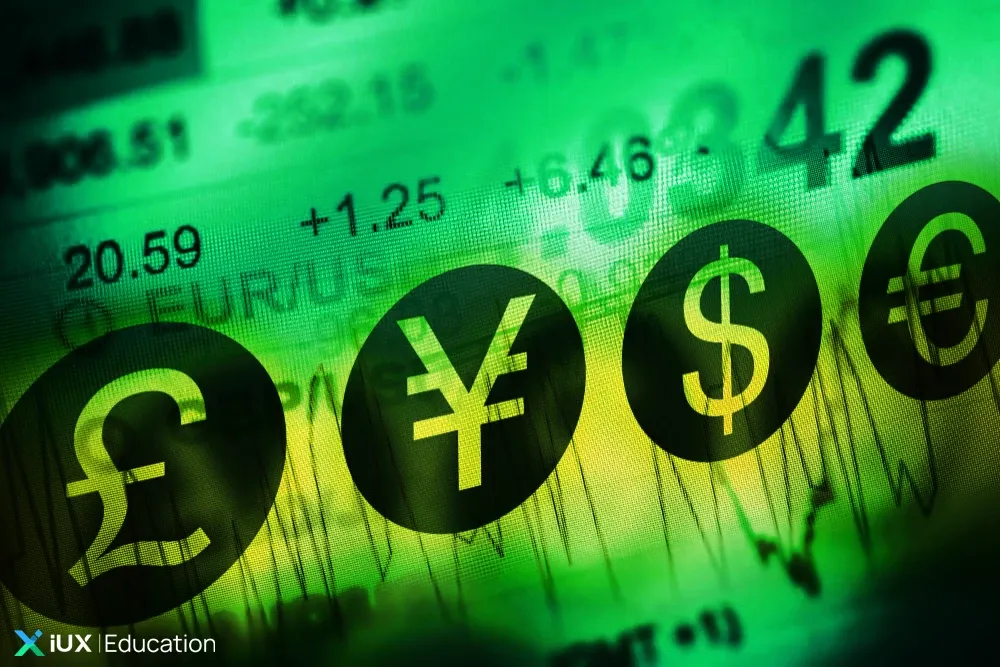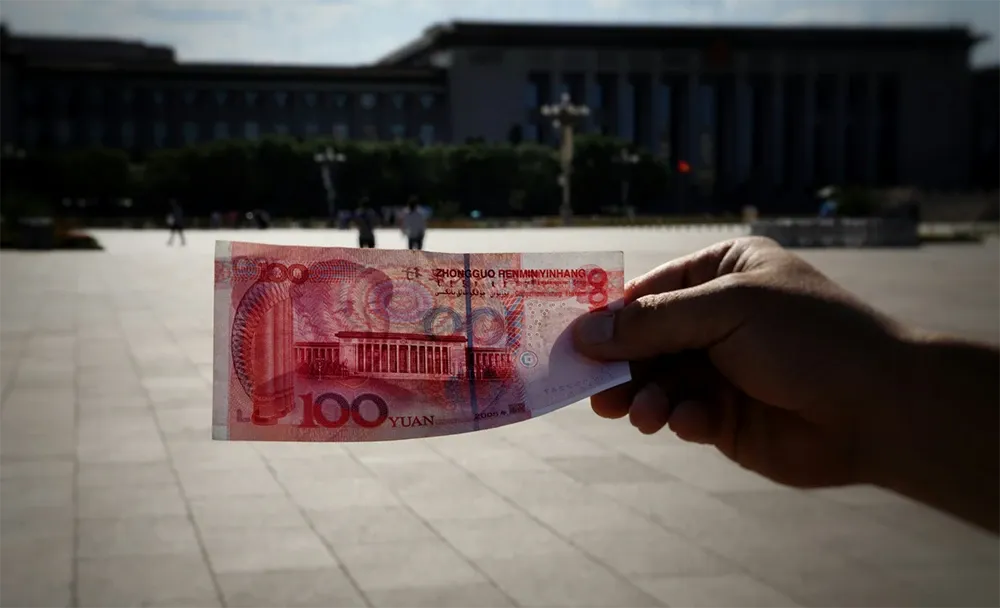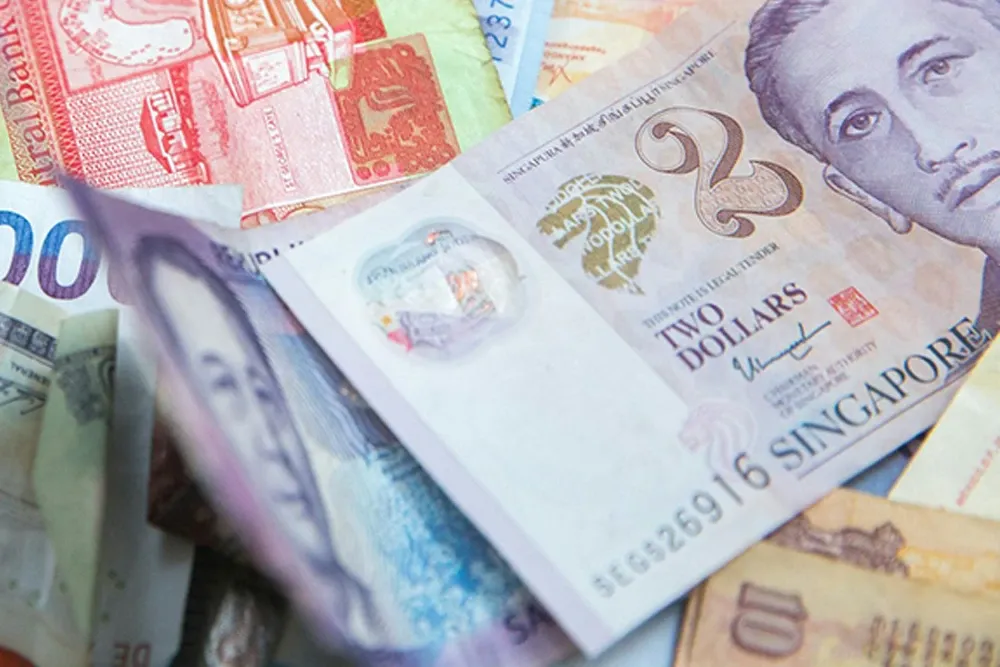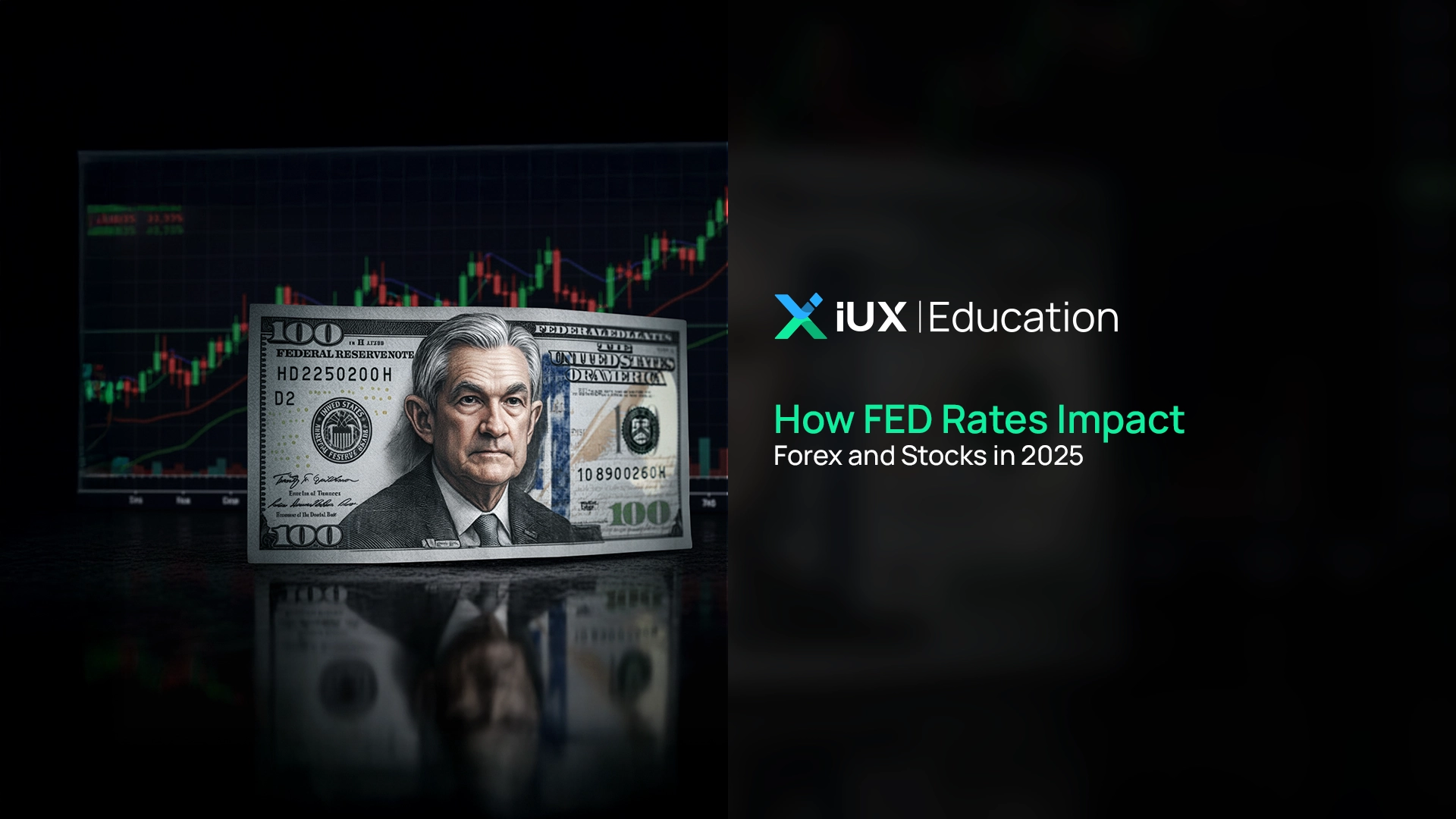CFDs are complex instruments and come with a high risk of losing money rapidly due to leverage. 76% of retail investor accounts lose money when trading CFDs with this provider. You should consider whether you understand how CFDs work and whether you can afford to take the high risk of losing your money.
CFDs are complex instruments and come with a high risk of losing money rapidly due to leverage. 76% of retail investor accounts lose money when trading CFDs with this provider. You should consider whether you understand how CFDs work and whether you can afford to take the high risk of losing your money.

How Exchange Rates Affect the Forex and Investment World
Exchange rates play a crucial role in the economy because they reflect a country’s stability and growth potential. They directly impact global trade, international business operations, and individual investment decisions. This is why governments, businesses, and individuals alike should keep an eye on exchange rate movements — to better understand the economic landscape and prepare for potential changes.
| Key Takeaways |
- Exchange rates reveal a country’s stability and guide trade and investment.
- Volatility creates profit potential but requires stop-loss protection.
- Fixed, Floating, Hybrid, and Managed Floating systems shape trading strategies.
- Economic news, rates, and policies move markets — stay informed.
What Is an Exchange Rate and Why Does It Matter?
An exchange rate is the price that tells you how much of one currency you can get with one unit of another. For example, if 1 US dollar can be exchanged for 0.90 euros, it means that 1 dollar is worth 0.90 euros in the financial market. This helps us understand how the value of different countries’ currencies compare to one another.
Exchange rates are usually quoted as currency pairs. The first currency is called the base currency, and the second is the quote currency. For instance, in the EUR/USD pair with an exchange rate of 1.18, it means that 1 US dollar can be exchanged for 1.18 euros.

How Exchange Rates Affect Forex Trading
Exchange rates have a direct impact on Forex trading because they determine a trader’s profit or loss every time an order is opened. When the base currency strengthens or weakens against the quote currency, the price of the currency pair moves immediately — causing the value of your trading account to rise or fall depending on your position.
Additionally, exchange rate volatility creates opportunities for traders to profit in both rising and falling markets. This is why keeping track of economic news, interest rates, inflation, and monetary policies is essential — as these factors influence exchange rate movements and help traders identify better trading opportunities.
 |
Tip: Always set a stop-loss order when trading. Exchange rate movements can be fast and unpredictable — a well-placed stop-loss protects your capital and keeps emotions from taking over when the market moves against you. |
Open an IUX account today and start trading with an edge.
Exchange Rate Systems Every Forex Trader Should Know
Exchange rates are a key mechanism that determine the price of one currency relative to another. Each country chooses an exchange rate system that aligns with its economic conditions and monetary policies. Here are the main systems that traders should be familiar with:
1. Fixed Exchange Rate System

In this system, a government sets and pegs its currency to a major currency such as the US dollar. It uses monetary policy or market intervention to keep the exchange rate from fluctuating too much.
Example:
China once pegged the yuan at 7 yuan per 1 US dollar, preventing the currency from moving freely with market forces to keep its exports competitively priced in the global market.
- Advantages: A stable currency allows businesses and investors to plan more easily and reduces the risk of exchange rate volatility.
- Disadvantages: In times of global economic shifts, the government may need to spend large amounts of foreign reserves to maintain the pegged rate.
2. Floating Exchange Rate System

In this system, a currency’s value is determined by market forces — primarily supply and demand in the foreign exchange market — with little to no government intervention.
Example:
The United States uses a floating exchange rate system. The US dollar fluctuates based on supply and demand. For instance, if the Federal Reserve raises interest rates, global investors may flock to the dollar, causing it to appreciate.
- Advantages: This system is highly flexible, allowing currencies to adjust quickly to economic conditions.
- Disadvantages: Exchange rates can become highly volatile at times, increasing risks for businesses and investors.
3. Hybrid Exchange Rate

This system combines elements of both fixed and floating exchange rates. The currency is generally allowed to float according to market forces, but the government intervenes if the exchange rate moves too far in either direction.
Example:
Singapore uses a managed float system, known as the Basket-Band-Crawl (BBC) framework. The Singapore dollar (S$NEER) moves within a policy band set by the Monetary Authority of Singapore (MAS). When volatility is excessive, MAS intervenes by adjusting the band or buying/selling currency to stabilize the market.
- Advantages: This approach strikes a balance between stability and flexibility.
- Disadvantages: Frequent intervention by the government can create uncertainty and reduce market confidence over time.
4. Managed Floating Exchange Rate System

In this system, the currency primarily floats according to market forces, but the government or central bank steps in when there are extreme fluctuations that could harm the economy.
Example:
India follows this system for managing the rupee. While the rupee moves based on market supply and demand, the Reserve Bank of India intervenes by buying or selling currency when the rupee weakens excessively to maintain stability.
- Advantages: Helps reduce the risk of excessive volatility in global markets.
- Disadvantages: Too much intervention can raise concerns about policy transparency and create uncertainty among market participants.
Key Impacts Forex Traders Should Know
-
Fixed Exchange Rate: Pegged to a major currency like the US dollar, keeping price movements narrow and stable. Good for long-term planning, but traders see fewer opportunities — except during devaluation or revaluation, which can trigger sharp, short-term moves.
-
Floating Exchange Rate: Moves freely with market forces, reacting to news, interest rates, and sentiment. High volatility and liquidity make it ideal for technical and news traders, with profit potential in both rising and falling markets.
-
Hybrid Exchange Rate: Floats within a set band, as in Singapore. Prices are more predictable, making range trading strategies effective, though traders must watch for breakouts near the band limits.
-
Managed Floating Exchange Rate: Mostly free-floating, but central banks step in during extreme volatility. Interventions can quickly reverse trends, so traders need to follow economic news and central bank updates closely.
Conclusion
In today’s highly interconnected global economy, exchange rates are more than just numbers for currency conversion — they are indicators of economic trends and market sentiment. Investors who understand and adapt to exchange rate movements gain a clear advantage in planning and achieving stronger returns.
In an era where volatility is the norm, knowledge and the right strategy are key to navigating challenges and spotting hidden opportunities. Success in the financial world isn’t just about luck — it’s about preparation, careful decision-making, and having a clear view of both the markets and the global economy.
💡FAQs
Q : How often do exchange rates change?
A : Exchange rates can fluctuate continuously throughout the day, influenced by economic factors such as interest rates, inflation, news events, and market sentiment. Traders should monitor real-time data to adjust strategies promptly.
Q : How do exchange rates affect a trader’s profit or loss?
A : When the base currency strengthens or weakens against the quote currency, the currency pair price moves instantly—causing gains or losses in the trader’s position depending on the trade direction.
Q : Which exchange rate system is best for beginner traders?
A : Most Forex markets operate under a floating exchange rate system, providing high liquidity and opportunities to profit in both rising and falling markets. Beginners should start with a demo account to practice analysis before trading live.
Note: This article is intended for preliminary educational purposes only and is not intended to provide investment guidance. Investors should conduct further research before making investment decisions.
Source 1




